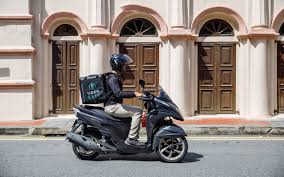San Francisco Mayor London Breed temporarily caps the fees restaurants pay delivery providers

During coronavirus crisis, third-party players can charge no more than 15% in commission
Source: https://www.restaurant-hospitality.com/
Lisa Jennings
Apr 12, 2020
San Francisco Mayor London Breed on Friday announced a temporary cap on the fees third-party delivery providers can charge restaurants during the coronavirus crisis.
In a supplement to the city’s local emergency declaration made in February, Breed said third-party providers like Grubhub, DoorDash and Uber Eats can charge restaurants a fee of no more than 15% for however long the pandemic-related shutdown of restaurant dining rooms lasts, or for the remainder of the local emergency, whichever is lifted first. If open at all, restaurants across the city are limited to takeout, delivery and curbside pickup service only and residents have been ordered to stay at home, except for essential activities, through May 3.
Across the country, restaurant advocacy groups have long called for stricter regulation of the fees charged to restaurants by third-party players, which serve as both a marketplace for consumers to find and order food from restaurants but often also offer the last-mile logistics of moving that order from restaurant to consumer. Typically, the fees restaurants pay can range from 10% to 30%
San Francisco, however, is one of the first cities to make a move to restrict what third-party delivery players charge restaurants.
Breed said the decision was made to cap fees after seeing restaurants across the city struggling under the city’s stay-at-home order.
“Restaurants across San Francisco are struggling to stay open,” said Breed in a statement. “In these tough financial circumstances, every dollar counts and can make the difference between a restaurant staying open or shuttering. It can make the difference between staying afloat or needed to lay off staff.”
The move comes a day after DoorDash on Thursday said it would cut by 50% its commission fees for independent restaurants specifically, or those that have five or fewer locations on the DoorDash app. The deal is also offered by sister brand Caviar.
That relief effort is scheduled to run April 13 through the end of May and would apply to about 150,000 restaurants in the U.S., Canada and Australia – including more than 1,600 in San Francisco alone. The waived fees vary, depending on each restaurant’s negotiated contract.
San Francisco’s cap, however, would apply to all restaurants, not just independents.
In a statement, DoorDash officials said they were reviewing Mayor Breed’s order, “including whether the program we have introduced is more beneficial to restaurants and the legal basis for such an extraordinary unilateral action.”
DoorDash officials said they are also concerned about the ability of Dashers – their term for delivery drivers – and “ensuring they have strong earning opportunities, especially during this crisis when so many are struggling to make ends meet.”
Grubhub, meanwhile, in a statement said the company was founded with a “fee-for-service” model, saying San Francisco restaurants have always been able to receive delivery orders for fees under 15%. But “many restaurants choose to pay more than 15% in order to access additional advertising or other products and services,” a Grubhub spokesperson said.
Fundamentally, if restaurants pay less, consumers will pay more, the spokesperson indicated.
“In the face of this new policy shift, we are going to give restaurants the ability to pass some of these optional costs onto consumers,” the spokesperson said. “Unfortunately, this will result in significantly higher diner fees and decreased restaurant orders. Restaurant owners know what is best for their businesses and Grubhub remains committed to helping them every step of the way.”
Uber Eats in a statement said the company supports efforts to help the hospitality industry, noting that the delivery provider has focused on driving demand to local restaurants, including waiving fees for independent restaurants, waiving fees for restaurants on pickup orders and reducing commissions on orders that restaurants deliver with their own staff.
However, an Uber spokesperson said, “Regulating the commissions that fund our marketplace – particularly during these unprecedented times – would force us to radically alter the way we do business, set a far-reaching precedent in a highly competitive market, and could ultimately hurt those that we’re trying to help the most: customers, small businesses and delivery people.”
Praising Breed for her order, San Francisco Supervisor Aaron Peskin in a statement indicated a more permanent solution is in the works.
“These corporations have refused to adjust their fees and are profiting immensely off a public health crisis while restaurants and their employees are suffering,” Peskin said. “They are trying to undercut responsible regulation in the midst of this emergency, while also denying worker demands for basic safety gear, hazard pay and adequate sick leave. I appreciate the mayor acting quickly to provide immediate, temporary relief for San Francisco restaurants while we continue to work on more permanent relief.”
